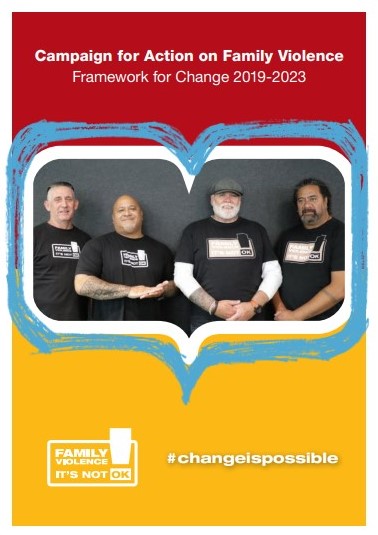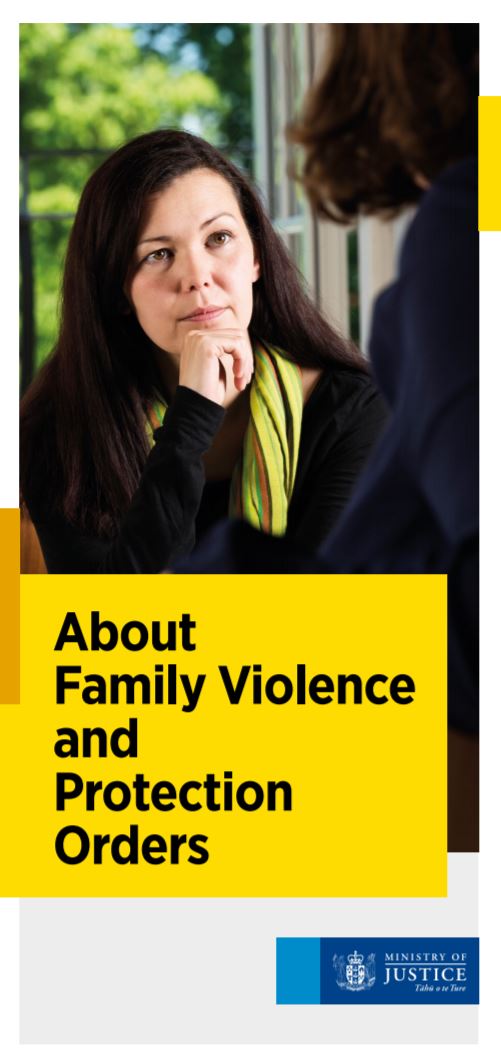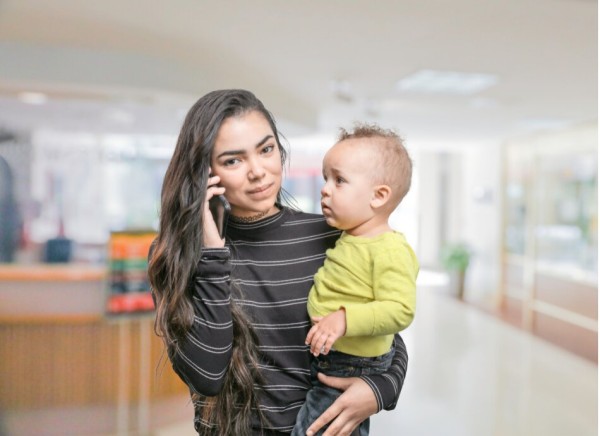If you're a frequent visitor to Healthify, why not share our site with a friend? Don't forget you can also browse Healthify without using your phone data.
Family violence – preventing
Key points about preventing family violence
- Family violence is when one family/whānau member, or person you're in a close relationship with, uses violence or abuse against another person.
- It can be physical, psychological, sexual or financial.
- There are things you and your community can do to help promote a culture of anti-violence.
- These include reporting any violence, offering support, not accepting the 'normalising' of family violence, and taking responsibility for your own behaviour.

Family violence is when one family/whānau member, or a person you’re in a close personal relationship with, uses violence or abuse of any type against another family member to control or hurt them. Family violence can be physical, psychological, financial or sexual. It can also include neglect. Read more about family violence.
One of the reasons family violence is common is because of widely held beliefs and attitudes that make it seem okay. These include the view that it’s alright to use violence against women, and violence and other controlling behaviours within intimate partner and family relationships.
To reduce and prevent family violence, we all need to take ownership of the part we play in promoting healthy attitudes and beliefs.
Image credit: Canva
1. Report any violence
Family violence is a crime and is never okay. Call the Police on 111 if you think you or someone else is in danger. If it’s not safe to speak, push 55 on a mobile (any number on a landline) to be put through to Police.
If it's not an immediate crisis but you want support, or someone to talk to about your concerns, phone the It’s Not OK information line on 0800 456 450 or call the Police on 105.
2. Offer support
If you know or suspect someone is experiencing family violence, offer your support in a non-judgemental way. Give information, not advice and don’t be pushy. Choose a quiet time in private to talk to them. Ask if they are okay and whether there is anything you can do. Check in on them and offer them a safe place to go. Let them know about different support services that are available including a refuge for pets(external link) if they need to get out and can't take pets with them..
Keep in mind that adults affected by family violence feel a lot of shame, whether they are being violent or being hurt. They need to make changes in their own time when they are ready.
Children need to be protected from violence happening in their homes – they need adults around them to keep them safe. If you're worried a child may be being abused, don’t wait and don’t assume someone else is acting. Read more about preventing child abuse.
3. Be a ‘Conversation Champion’
If you hear someone talking about family violence in a way that normalises it or makes it seem okay, become a Conversation Champion by challenging what they are saying in a safe and respectful way. Whether those conversations are in person, by text or on social media, make it clear you disagree and that what they said is not okay, even if they said it in a joking way.
4. Get your community involved
Getting local businesses, schools, sports clubs, community groups and councils involved in initiatives such as the It’s Not OK campaign(external link) is a way to champion the anti-violence message at a local level.
5. Take responsibility for your own behaviour
If your family is scared of you, or if people tell you that your behaviour is frightening, you might need to consider making changes to the way you behave.
Admitting you need help and changing your behaviour takes courage, effort and determination but brings lifelong rewards. Support is available and change is possible. Find out what to do next.(external link)
The Family Violence Information Line (0800 456 450) provides self-help information and connects people to services where appropriate. You can also search 'Family violence' in our services directory for support services in your area or look on the New Zealand Family Violence Clearinghouse links(external link) page.
Brochures
Campaign for action on family violence(external link) Ministry of Social Development, NZ
About family violence and protection orders(external link) Ministry of Justice, NZ, 2019
References
- Reducing family and sexual violence(external link) Ministry of Justice, NZ
- What is family violence?(external link) Are You OK, NZ
- Get help(external link) Women's Refuge
Brochures

Ministry of Social Development, NZ

Ministry of Justice, NZ, 2019
Credits: Healthify editorial team. Healthify is brought to you by Health Navigator Charitable Trust.
Reviewed by: Juanita Harrison, Clinical Psychologist and Certified Life Coach, Auckland
Last reviewed:






